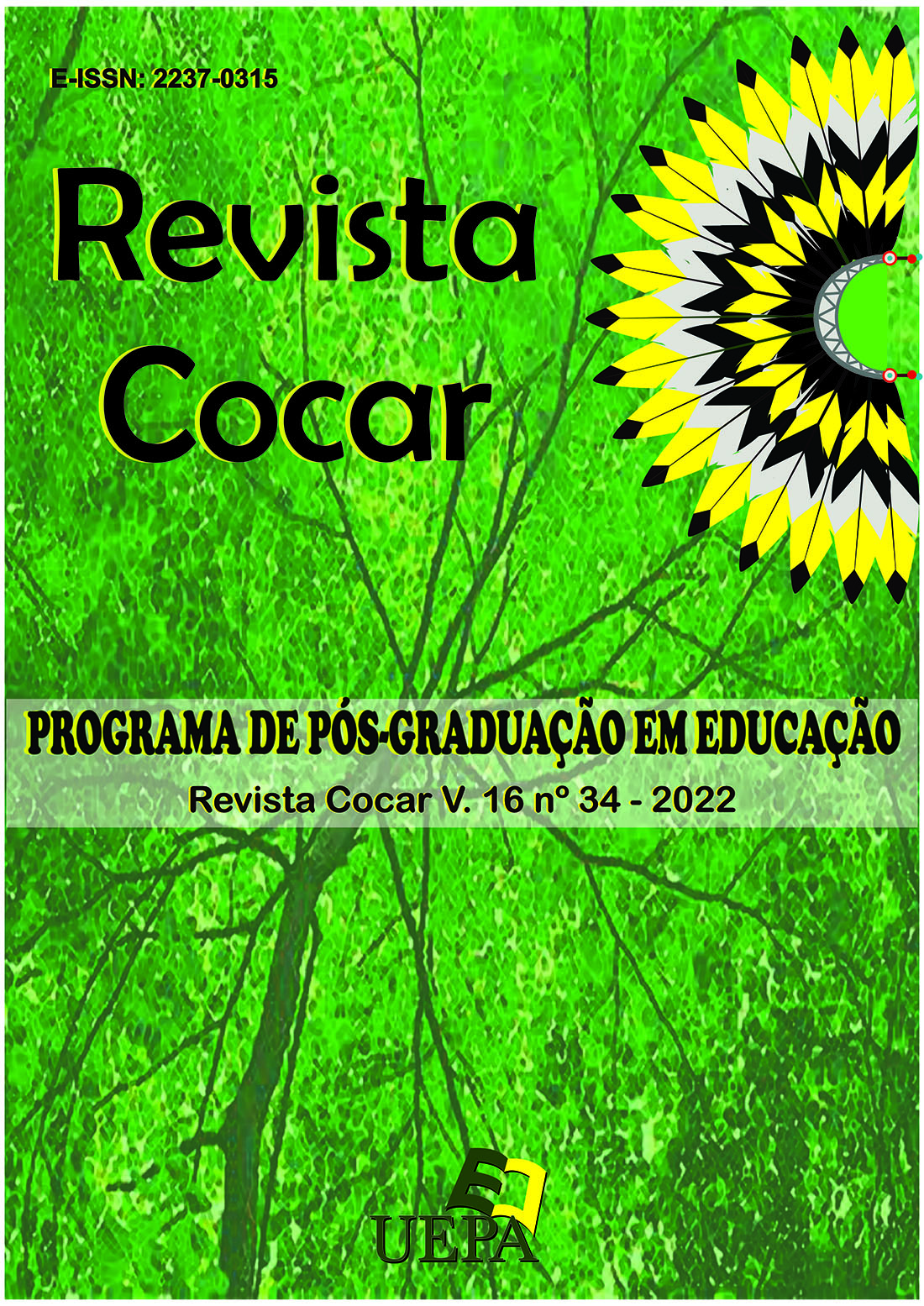O direito de bebês à educação e à saúde da professora: o lugar do corpo
The right of babies to education and to teacher’s health: the place of the body
Resumo
Neste trabalho, discute-se o lugar que o corpo ocupa quanto à docência no berçário e analisa-se a potencialidade do corpo da professora, com ênfase à centralidade deste para estabelecer relações e construir aprendizagens no berçário, além de refletir de que maneira a exigência corporal intensa impacta na saúde da professora. A pesquisa foi de natureza qualitativa. Foram utilizadas as reflexões decorrentes do projeto Formação continuada de professoras de berçário: as vozes das professoras na construção de saberes sobre a docência com bebês, pautado na perspectiva dialógica de formação. Os dados foram gerados com e entre as participantes, mediante as narrativas trazidas para os debates durante os encontros realizados com professoras de bebês da Rede Pública do Município de Belém-PA, no ano de 2019. As narrativas foram gravadas, transcritas e analisadas pelas docentes pesquisadoras. A análise confirmou que a relação na docência durante a pequeníssima infância é central e estabelece-se, principalmente, tanto por meio do corpo do adulto como do bebê. Nesta relação, a professora, para além de disponibilizar o seu corpo, precisa “ler” o que o corpo do bebê comunica e com este dialogar corporalmente; ela afeta e é afetada com esse contato, quando capta e elucida as diversas demandas que o bebê lhe emite. Contudo, como essas relações são intensas, assegurar condições de trabalho à professora é indispensável para a saúde física e emocional dessa profissional no cotidiano da instituição educativa.
Palavras-chave: Docência no berçário; Corpo; Formação Continuada.
Abstract
In this work it discusses the role of the body in terms of teaching in the nursery and it analyzes the potential of the teacher's body, with emphasis on its centrality to establish relationships and to build learning in the nursery, in addition of reflecting on how the requirement intense physical activity impacts on the teacher's health. The research was qualitative in nature. Reflections arising from the project continuing Education of nursery teachers were used: teacher’s voices in the construction of knowledge about teaching with babies, based on the dialogical perspective of education. The data were generated with and between the participants, through the narratives brought to the debates during the meetings held with baby teachers from the Public Network of Belém-PA Municipality in 2019. The narratives were recorded, transcribed and analyzed by the research professors. The analysis confirmed that the relationship in teaching during very young childhood is central and it establishes mainly through both the adult and the baby's body. In this relationship, the teacher, in addition of making her body available, needs to “read” what the baby's body communicates and dialogue with it bodily; she affects and is affected by this contact, when it captures and elucidates the various demands that the baby makes. However, as these relationships are intense, ensuring working conditions for the teacher is essential for the physical and emotional health of this professional in the daily life of the educational institution.
Keywords: Teaching at a nursery; Body; Continuing Education.
Downloads
Downloads
Publicado
Métricas
Visualizações do artigo: 207 pdf downloads: 165
Como Citar
Edição
Seção
Licença
O envio de qualquer colaboração implica automaticamente a cessão integral dos direitos autorais à Revista Cocar. A Revista não se obriga a devolver os originais das colaborações enviadas.Deprecated: json_decode(): Passing null to parameter #1 ($json) of type string is deprecated in /var/www/html/periodicos/plugins/generic/citations/CitationsPlugin.inc.php on line 49























